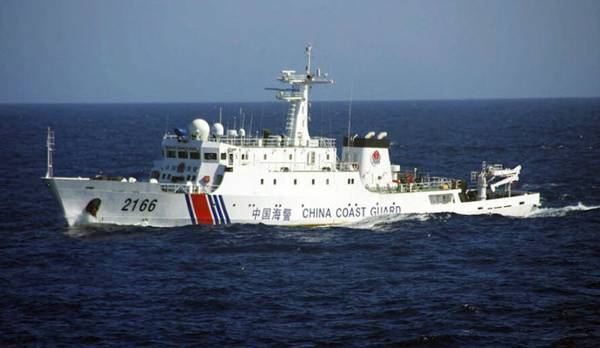


In recent years, Japan has never stopped pointing fingers at reasonable activities when they are carried out by China. Recently, however, even more fuel has been added to the fire through the launch of unnecessary protests.
Though most of these protests are related to the same old issues, such as China's patrolling the Diaoyu Islands or the country's resource exploitation in the East China Sea, the high frequency of such protests reveals Japan's underlying intention.
First of all, the Japanese government has clearly escalated its reactions toward China's mere existence in the waters adjacent to the Diaoyu Islands. However, China has done nothing to incite this escalation. Ever since 2012, when then-Japanese Prime Minister Yoshihiko Noda launched the "nationalization" campaign of the Diaoyu Islands, China has simply strengthened its control over the waters surrounding these islands to safeguard its sovereignty. However, Japan seems particularly sensitive in recent days, and has always exaggerated the sinister quality of China's every move in the region.
In addition, Japan is now doing more to disrupt China's oil and gas resource exploitation in the East China Sea. In 2008, China allowed Japan into the Chunxiao gas field for the sake the regional stability, but Japan has since tried to demarcate the border under the pretext of resource exploitation. Japan is obviously the party to blame for the failure of this cooperation. Nevertheless, Japan has repeatedly opposed China's activities in the region and even criticized China for not implementing the 2008 consensus. Recently, Japan staged a new complaint against China's development in the East China Sea. Of course, these frequent protests only expose the fact that Japan's real intention is to benefit itself.
Firstly, Japan wants to weaken the ties between China and ASEAN countries. The newly-elected president of the Philippines will not follow the foreign policy of the Aquino administration, but has instead expressed willingness to improve ties with China. The South China Sea issue has also cooled off recently. Given such a context, the Japanese government is resorting to sneaky means to hurt China's public image and strengthen its own ties with the Philippines. Japan's foreign minister will soon kick off an official visit to the Southeast Asian nation. Japan is even asking the Philippines to resort to arbitration once again.
Secondly, Japan is trying to contain China's development by seeking new allies. By playing up its anti-China stance, it is now poised to play a more important role than ever in the Asia-Pacific Rebalance strategy proposed by the U.S.
Thirdly, Japan wishes to become a bigger political and military power. Using the excuse of coping with Chinese threats, Japan can increase its interference in regional affairs. This excuse, coupled with increased military spending and the lifting of the ban on Japan's collective right of self-defense, poses a new security threat to the region.
China will neither be blinded by illusion nor compromise on its core interests. There is truly no reason for Japan to overreact to or protest against China's reasonable and legal activities in the East China Sea.
The author is the Deputy Director of the Department for International and Strategic Studies, China Institute of International Studies.
This article is edited and translated from 海外版望海楼:日本“抗议上瘾”意欲何为 Source: People's Daily Overseas Edition
 Spectacular bridge with one of the tallest piers in the world
Spectacular bridge with one of the tallest piers in the world Magnificent view of Hukou Waterfall
Magnificent view of Hukou Waterfall A glimpse of Stride 2016 Zhurihe B military drill
A glimpse of Stride 2016 Zhurihe B military drill US Navy chief tours Liaoning aircraft carrier
US Navy chief tours Liaoning aircraft carrier Chinese American woman wins Miss Michigan
Chinese American woman wins Miss Michigan Centenarian couple takes first wedding photos
Centenarian couple takes first wedding photos Traditional Tibetan costumes presented during fashion show
Traditional Tibetan costumes presented during fashion show How did ancient people escape the summer heat
How did ancient people escape the summer heat Breathtaking scenery of Hulun Buir grassland
Breathtaking scenery of Hulun Buir grassland Top 10 livable Chinese cities
Top 10 livable Chinese cities Top 20 hottest women in the world in 2014
Top 20 hottest women in the world in 2014 Top 10 hardest languages to learn
Top 10 hardest languages to learn China’s Top 10 Unique Bridges, Highways and Roads
China’s Top 10 Unique Bridges, Highways and Roads Returnee resources
Returnee resources Smug Aussie swimmer won’t cloud Rio
Smug Aussie swimmer won’t cloud Rio Jade and redwood traders in China face challenges
Jade and redwood traders in China face challenges  Censorship a hurdle for tomb raiding book adaptations
Censorship a hurdle for tomb raiding book adaptations Day|Week